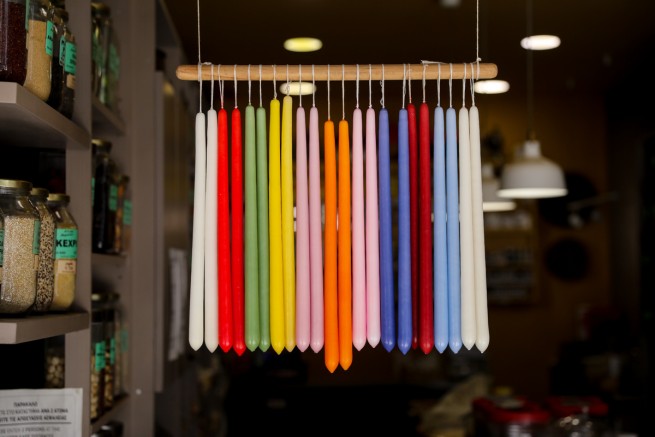The recent crash of the Antonov in Greece raises associations and questions about the powerful Serbian arms lobby and its relationship with the political authorities.
As the article notes, “Serbian weapons were sold by an unidentified dealer and loaded onto a Ukrainian plane for transportation to Pakistan, but never reached their destination as the plane crashed and crashed in northern Greece. It all looks like a movie thriller, but it happened in reality “.
A Ukrainian Antonov plane took off on July 16 from the city of Nis in southern Serbia carrying 11.5 tons of Serbian-made mortars and grenades. There are suspicions that the seller of the cargo was Slobodan Tesic, one of the largest arms dealers in the Balkans, who has been under US sanctions for many years.
The plane crash is not only causing diplomatic friction between Greece (which apparently didn’t know the cargo was dangerous) and Serbia or Ukraine. It also raises many questions about Serbia’s powerful arms industry, which is increasingly accused of corruption and illegal exports. Serbia is one of the largest arms producers in Central and South-Eastern Europe, with a tradition dating back to the days of united Yugoslavia. It manufactures and exports everything from pistols and mines to artillery systems, radars, electronic equipment, armored vehicles and military aircraft. The Serbian Ministry of Defense estimates the value of arms exports in 2020 at $600 million, which is 3% of Serbia’s total exports. However, there is no absolutely reliable data.
Weapons for crisis hotspots around the world
The main buyers of Serbian weapons and weapons systems are the United Arab Emirates, Cyprus, the United States, Bulgaria and Saudi Arabia. But the Serbian arms lobby has clients all over the world, says Vuk Vuksanovic, a political scientist and staff member at the Center for Security Policy (BCBP) in Belgrade. “The Serbian state does not want to lose a single dinar from this export,” he says. “The red line, however, is subjecting the export destination to UN sanctions or waging war on its territory.”
Vuksanovic emphasizes, however, that Serbia “does not always respect these rules.” In previous decades, the country exported weapons to war zones or crises where there was an arms embargo. In 2019, it became known that Serbian weapons fell into the hands of armed Islamists in Yemen via Saudi Arabia. In 2020, the Azerbaijani army tracked down Serbian weapons in Nagorno-Karabakh, which were sold to Armenia. In February, the Serbian Investigative Journalism Network found that Serbian weapons were being shipped to Myanmar even after the establishment of a military junta in the country in February 2021.
The name that keeps repeating
The name of Slobodan Tesic keeps popping up in conversations about the illegal export of Serbian weapons. The 64-year-old has been active in the arms trade in the Balkans for decades. From 2003 to 2013, his name was on the US sanctions list for illegal exports to Libya. In 2017, new sanctions against Tešić came into force, which are still in force and include, in particular, a ban on his entry and the seizure of his assets in the United States. There, Tesic is officially named “the largest arms and ammunition dealer in the Balkans.”
At the same time, his name is at the center of several corruption cases in the Serbian arms industry, including the so-called “Krushik case”, which became known in the fall of 2019. Companies owned by this businessman allegedly bought weapons (shells, mines, cartridges) at discount prices to resell them at high prices abroad, although in theory the state-owned company Jugoimport-SDPR should have been responsible for this transaction.
The financier of the ruling party?
In these transactions between state-owned enterprises and their private partners, money is said to have flowed into the coffers of President Aleksandar Vučić’s ruling Progressive Party (SNS) from time to time. Tešić is considered one of the main financiers of SNS. According to Serbian media, he has a diplomatic passport. The father of the current defense minister, Nebojsa Stefanovic, was allegedly involved in similar deals in the past. Both Vucic and Stefanovic have denied the allegations for years. Not surprisingly, Testik’s name has also been mentioned in recent days, as he is said to be behind the Valir company, which has officially launched arms sales in Bangladesh. Testic himself never comments on the allegations that are made against him from time to time.
An end to opportunistic politics?
Indeed, there is no shortage of scenarios according to which the weapons of the Ukrainian Antonov were probably not intended for Bangladesh, and for Ukraine itself – a claim, however, denied both by Defense Minister Sevres Stefanovich and by the Ukrainian company Meridian, which owned the Antonov. For his part, political scientist Vuk Vuksanovic believes there are still open questions. “Public opinion should get an answer to the question why it is the Ukrainian aircraft that is transporting Serbian weapons at a time when the largest international conflict of our time is flaring up on the territory of Ukraine,” Vuksanovic said.
In his opinion, the Antonov case is a typical example of the opportunist policy of Belgrade, which oscillates between different centers of power. “On the one hand, secret arms supplies for Ukraine, on the other hand, concessions to Russia in Serbia itself,” says Vuksanovic. “All this may be an example of the behavior of the Belgrade elite, which balances between different centers of power in order to extract the appropriate benefits. The question for Serbia is whether this policy will collapse if it angers one of these centers of power too much.”







More Stories
Today the world remembers the accident at the Chernobyl nuclear power plant
A trial has begun in the case of a fatal accident involving Dora Bakoyanni's car.
Poll: which European countries are ready to defend their homeland to the last